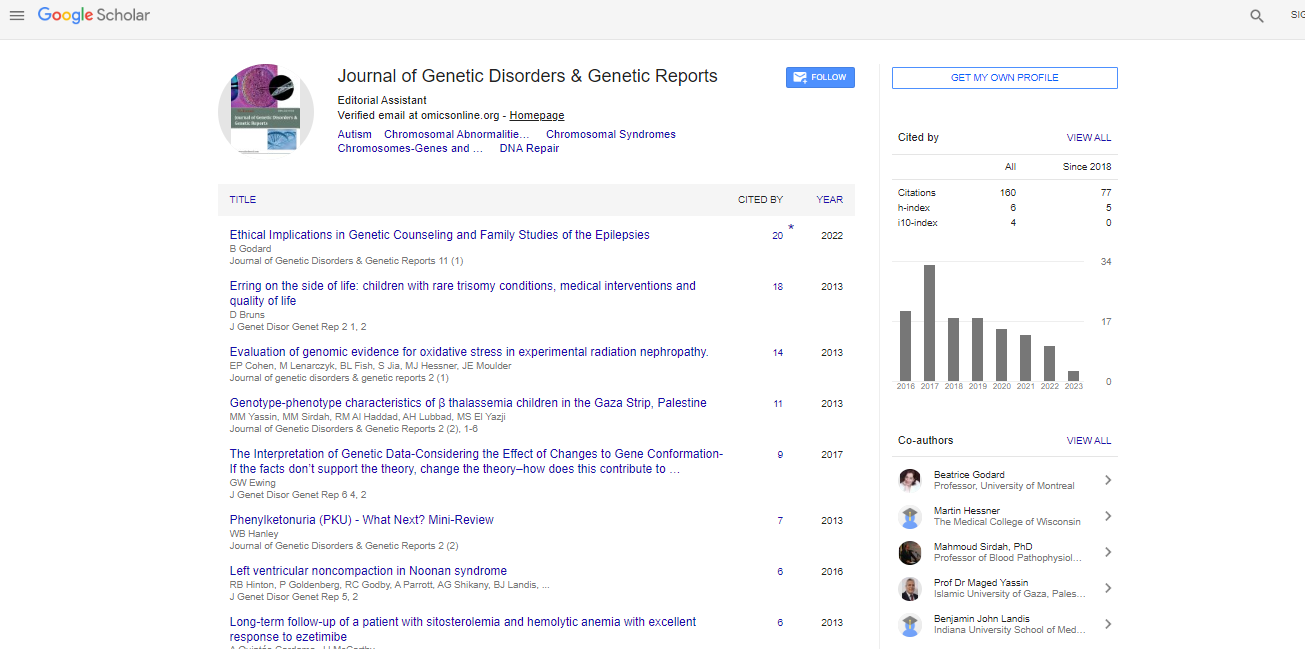Research Article, J Genet Disor Genet Rep Vol: 3 Issue: 1
Are Antimullerian Hormone and its Receptor Genes Associated with Low Ovarian Response?
| Chelsi Goodman1, Hosam Zaki2, Larry Fischel3, Hisham Greiss3 and Carolyn Coulam3,4* | |
| 1Chicago Medical School, Rosalind Franklin University of Medicine and Science,North Chicago, IL, USA | |
| 2Ganin Fertility Center, Cairo, Egypt | |
| 3Fertility and Cryogenics Laboratory, Downers Grove, IL, USA | |
| 4Reproductive Medicine Institute, Evanston, IL, USA | |
| Corresponding author : Dr. Carolyn Coulam Reproductive Medicine Institute, 2500 Ridge Ave, Suite 200, Evanston, IL 60201, USA Tel: 847 869 7777; Fax: 847 869 7782; E-mail: cbcoulam@aol.com |
|
| Received: February 03, 2014 Accepted: March 06, 2014 Published: March 12, 2014 | |
| Citation: Goodmana C, Zakib H, Fischelc L, Greissc H, Coulam C (2014) Are Antimullerian Hormone and its Receptor Genes Associated with Low Ovarian Response?. J Genet Disor Genet Rep 3:1. doi:10.4172/2327-5790.1000112 |
Abstract
Are Antimullerian Hormone and its Receptor Genes Associated with Low Ovarian Response?
One of the most frustrating problems in the treatment of infertility is that of poor ovarian response to stimulation. It therefore, would be advantageous to have a genetic marker that could predict low ovarian reserve at a young age before the impact of low ovarian reserve affects a woman’s fertility. Antimullerian hormone (AMH) has emerged as the the most accurate measure of ovarian reserve. The purpose of the present study is to investigate the correlation between AMH and AMH Receptor II (AMHRII) polymorphisms and low ovarian reserve.
 Spanish
Spanish  Chinese
Chinese  Russian
Russian  German
German  French
French  Japanese
Japanese  Portuguese
Portuguese  Hindi
Hindi 



